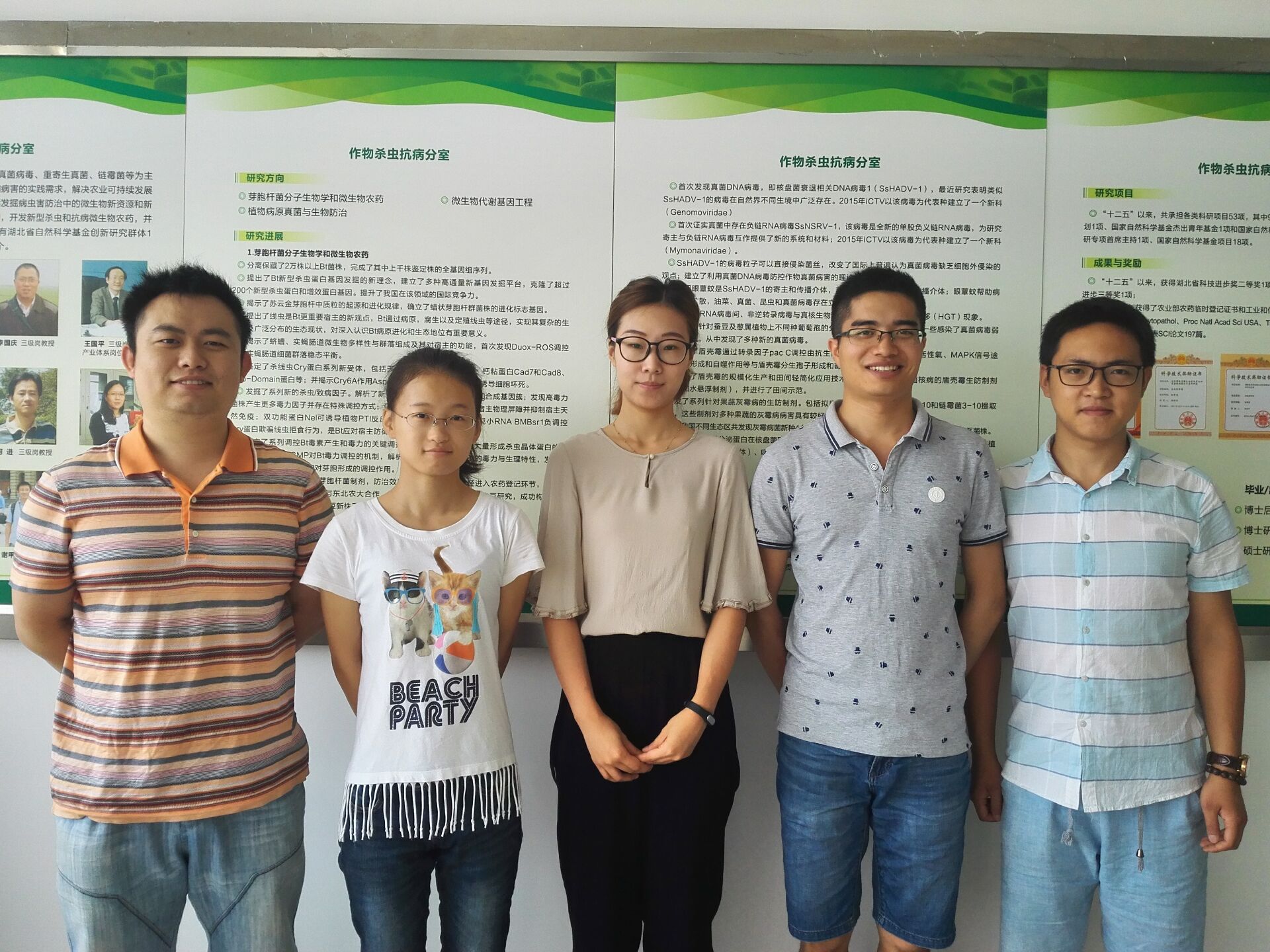
植物寄生线虫是一类寄生于植物各个组织中的农业害虫,每年给全世界的农林生产带来高达数千亿美元的损失。Bt产生的多种Cry蛋白对植物寄生线虫具有高效的毒杀活性,已商业化应用于生物农药防治线虫,但并没有研究清楚其具体的杀虫机制。本课题组以甘薯茎线虫和南方根结线虫为材料,主要研究方向有:Cry55Aa杀甘薯茎线虫机制; 利用体外RNA干扰的手段筛选影响植物寄生线虫发育繁殖和侵染能力的关键基因,并进一步研究这些基因的具体功能;Bt发酵产物TAA杀线虫机制等。
Plant parasitic nematodes are a class of agricultural pests that are parasitic in various tissues of plants, causing hundreds of billions of dollars in
annual losses to agriculture and forestry worldwide. Many Cry proteins produced by Bt are highly toxic to plant parasitic nematodes, and have been
commercialized for the control of nematodes by biological pesticides. However, no specific insecticidal mechanism has been studied. The main
research directions of this group were: Cry55Aa to kill the stem nematode of sweet potato; the key genes that influence the development, reproduction
and infectivity of plant parasitic nematodes were screened by means of RNA interference in vitro and further The specific function of these genes; Bt
fermentation products TAA nematicide mechanism.